On Friday 22 January, Ha-Joon Chang gave an online lecture, ‘Building Pro-Developmental Multilateralism – Towards a ‘New’ New International Economic Order’ as part of the Cutting Edge Issues in Development Lecture series. Ha-Joon Chang is an economist and author who has done advisory work for institutions including the World Bank, the Asian Development Bank, the European Investment Bank and various United Nations agencies. He teaches economics at Cambridge University. Read what ID students Erik Mozo, Jieun Heo and Santiago Franco Cardona took away from the lecture below.
You can watch the guest lecture back on YouTube.
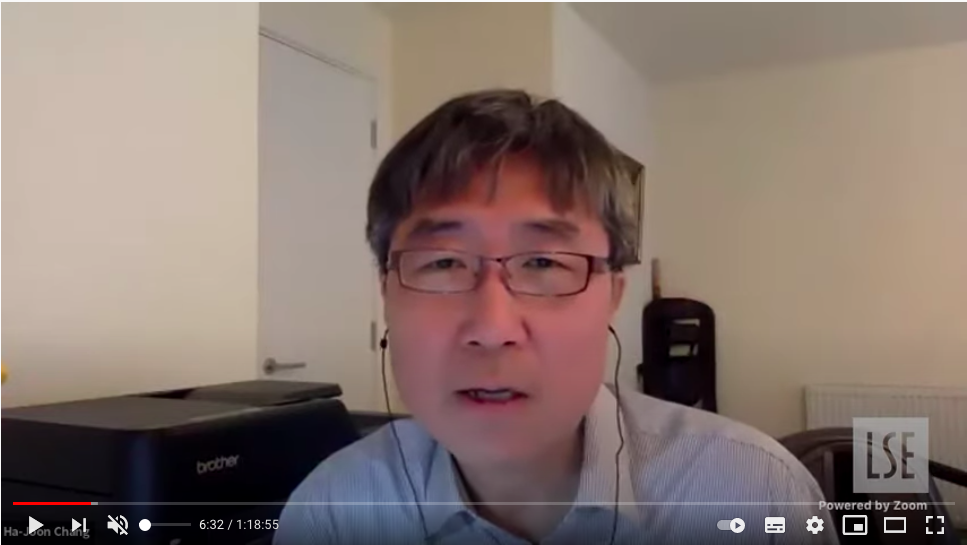
History does not repeat itself, but it often rhymes – Mark Twain
Professor Chang’s lecture addressed the need for a change in the International Institutions; one of humanity’s most significant challenges in the twenty-first century. The lack of effective global response to the Financial Crisis of 2008, the Covid-19 pandemic, the distribution of its vaccine, its subsequent economic crisis, and global warming are rooted in inadequate global rules. The international commercial framework follows the same logic. The World Trade Organisation (WTO) has had a deficient role in promoting low and middle-income countries development; indeed, most of its rules hamper it.
Once understood as a win-win idea for all countries, globalisation has received backlash in developing and developed countries alike. This counter-effect happened because abolishing economic barriers implied a lose-lose scheme for workers worldwide. Workers in developing countries suffer from de-regulation to attract foreign investment, and workers in developed countries suffer from an increase in the scarcity of jobs and the proliferation of mostly low-quality and low-paid jobs. This scheme is one of the reasons for the recent rise of inequality between and within countries.
Professor Chang’s proposal to reform the International Institutions is a ‘New’ New International Economic Order (NNIEO), inspired by Raul Prebisch’s initial idea in the 1960s. The core argument is that international institutions do not propel development. Instead, they inhibit developing countries from using ‘infant industry’ protection and promotion, that developed countries already used. By adhering to free trade, the WTO makes every country compete in equal conditions despite them having different capabilities. In professor Chang’s example, it is like making a lightweight boxer fight with a heavyweight.
According to their capabilities, developing countries need differential (not special) conditions to consolidate their industries. Instead of a level playing field, the core principle of a fair international system should be asymmetrical protection, along with policy space for countries to implement development strategies according to their needs. Asymmetrical protection should reduce as countries develop.
Professor Chang argues that developing countries need to rely on their greatest strength to achieve these changes: their number. The WTO has a one-country-one-vote multilateral scheme; as developing countries are by far a majority, they could radically change international rules. Nevertheless, in recent decades, developed countries have shifted towards bilateralism rather than multilateralism, which grants them more bargaining power.
What stopped Prebisch’s NIEO was the rise of the financial sector in the world’s political economy since the 1970s, which strengthened neoliberalism. Now, neoliberal hegemony is trembling as developed countries had deepened their state’s role in the economy to confront the 2008 and the Covid-19 crisis. Industrial countries have used monetary policy, subsidies, nationalisations and expanded their deficits, all measures against neoliberal doctrine.
There could also be more chances to achieve NNIEO now, as since the 1960s developing countries world trade share has grown and China’s rise as a lender, investor and trading partner grants developing countries more bargaining power. Also, global warming’s pressure will increase as the world crosses the red lines, pushing for technology transfers to developing countries.
NNIEO’s chances to succeed increase if the world recovers the (Green) New Deal’s spirit, regulating finance and putting the real economy in the centre. This change could enable the internationalisation of the New Deal’s spirit again through the Bretton Woods institutions, and give developing countries more policy space, as they had between 1945 and 1973, in the ‘Golden Age of Capitalism’. A coalition of developing countries could push through multilateralism to achieve these changes and recreate more just commercial rules based on asymmetrical protectionism, increasing their chances to develop.
Erik Mozo
_______________
In the 1970s, the New International Economic Order (NIEO) was set up by some developing countries through the United Nations Conference on Trade and Development (UNCTAD). In order to promote the interest of developing countries, NIEO intended to be in favour of those countries, attempting to replace the Bretton Woods system. In theory, the idea of NIEO could lead to a pro-developmental multilateral system. More than 30 years after, however, could we confidently say NIEO has played a role in favour of developing countries within the international trade system?
Prof. Ha-Joon Chang delivered a lecture about “Building Pro-Developmental Multilateralism – towards a ‘New’ New International Economic Order.” Even though the idea of NIEO has been recognized as being radical, it has been accepted and realised to some extent. Developing countries today can cast a veto against developed countries in the WTO by using a one-country, one-vote basis. It seems that the idea of NIEO still underlines the interests of developing countries under the multilateral system. In his view, however, the international multilateral system has been falling apart so that it is time to revive the interest of developing countries with the new order, called for a ‘New’ New International Economic Order (NNIEO). He also argued that WTO’s current set of rules is not compatible with developing countries, so NNIEO would embody pro-developmental international economic order. To achieve a truly developmental multilateral system, the principle of “asymmetric protectionism” should be centred. Moreover, he suggests some factors working against NNIEO – “no post-colonial guilt, systemic competition between the capitalist and socialist block and the dominance of neo-liberal ideology” etc. On the other hand, there are factors that could potentially be working in favour of the NNIEO – “emerging as important international financial actors in lending, foreign aid, and FDI.” By addressing factors in favour of NNIEO, he also highlights the idea that COVID-19 would be one of the contingent factors to effect a subtle and crucial change in perspective. It could change the international political discourse.
NNIEO should be “based on the principle of asymmetric protectionism and maximise policy space.” Therefore, if more room for policy-making were available, developing countries could tentatively optimize and perform together under the NNIEO era. This month, President Biden informed the UN Secretary-General that the United States were re-joining the Paris Agreement. It is hard to say the US’s return is a more positive signal to establish pro-developmental multilateralism towards NNIEO. However, in light of it, developing countries should actively act and negotiate together within the new multilateral discourse.
Jieun Heo
_______________
Development scholars often disagree with neoliberal economists on the policies necessary to boost economic growth. In Ha-Joon Chang’s most famous book Kicking away the ladder: development strategy in historical perspective, he outlines the main challenges that developing countries have when trying to reach high levels of economic growth. His talk focused on what is potentially the most pressing issue amid the COVID-19 pandemic: the importance of establishing a New International Economic Order (NIEO) where poor countries are allowed to reap the benefits of what he calls “forward-looking” protectionism.
For many this will be a scandalous concept! The argument against such a system relies heavily on referencing the failed protectionist policies in Latin America during the second half of the twentieth century. However, proponents of this viewpoint do not adequately consider the US tariffs and non-tariff barriers present today, the economic successes of the Asian Tigers, and the early examples of eighteenth-century industrial Britain.
Protecting nascent industries, as brilliantly pointed out by Professor Ha-Joon Chang, is a necessary but not sufficient condition for economic development. Luckily for us (yes, industrial policy in the “third world” also benefits the developed world, even if they do not realise it), the world seems to be heading in that direction.
As explained by Professor Chang, we have many reasons to believe that a new pro-developmental multilateralism is possible. First, ideas are changing. For example, during the 2008 crisis, many countries implemented anti-neoliberal policies, demonstrating that excessive deregulation in financial markets is a bad idea (he says that one of the biggest challenges of the world today is foot-loose finance). The same thing has happened due to the current pandemic, as we see governments implementing the outmost heterodox economic measures. Secondly, cooperation among developing countries is now bigger than ever, and that has been fostered by China’s leading role in the world economy; the G-77 + China, for example, is a leading group of countries today in the United Nations.
Moreover, Professor Chang argues that China is important due to its role as a creditor for developing countries, which provides them with leverage against mainstream international institutions by reducing their dependency on the IMF or the World Bank for loans. However, he underestimates the possible undesirable effects that China might have in countries where it has intervened. It is true, for example, that the Belt and Road Initiative is one of the most important development projects in the world, but it has the capacity to reduce the independence of participating countries in the long run. There is potential that China will behave as an imperial power rather than a strategic partner for cooperation in the global south.
The biggest threat to a NIEO that favours development is therefore perhaps not just foot-loose finance, but also, the growing role of China in this new economic system. As his discussant Professor Richard Kozul-Wright pointed out that “creditors are a very different type of animal”. The challenge might be bigger than Ha-Joon Chang believes.
Santiago Franco Cardona
This next lecture in the Cutting Edge Issues series will take place from 4-6pm (GMT) this Friday 29 January. Akosua Adomako Ampofo will be joining us from Cambridge to give a lecture on ‘Decolonizing Academia’. LSE staff and students can sign up for the lecture here and external audiences can join the lecture via YouTube.
The views expressed in this post are those of the authors and in no way reflect those of the International Development LSE blog or the London School of Economics and Political Science.


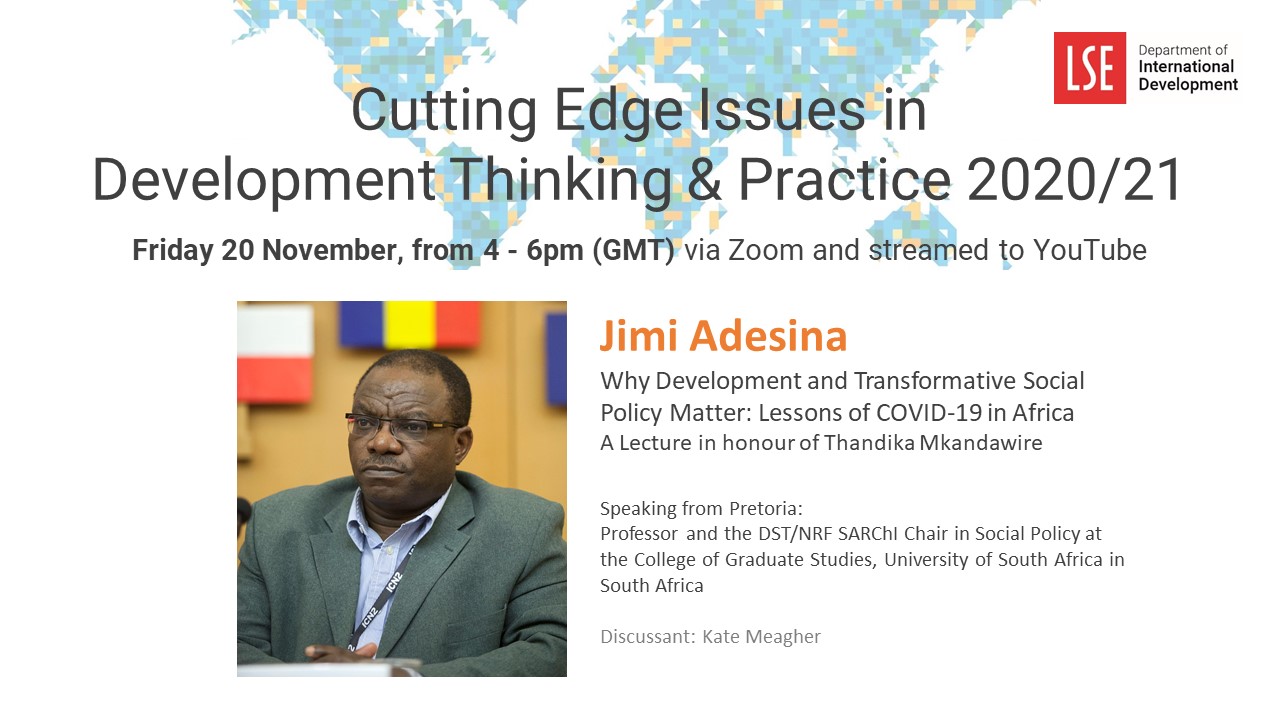
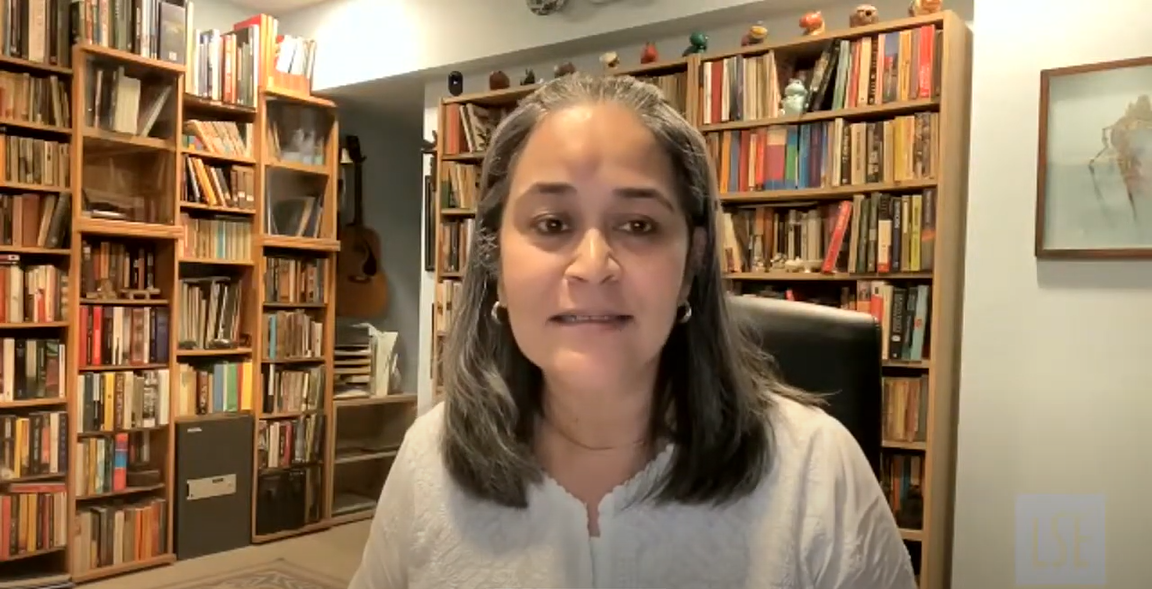
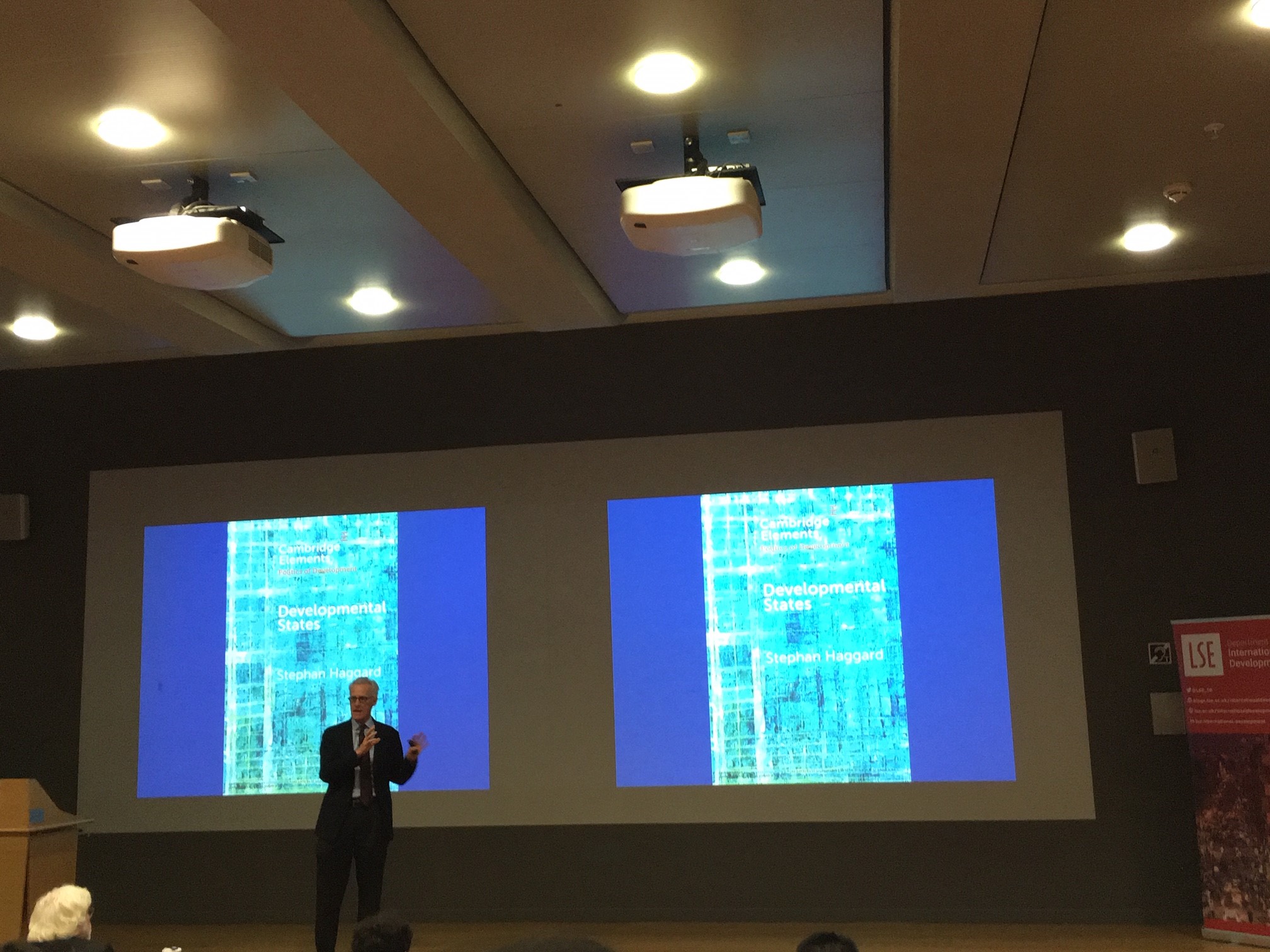
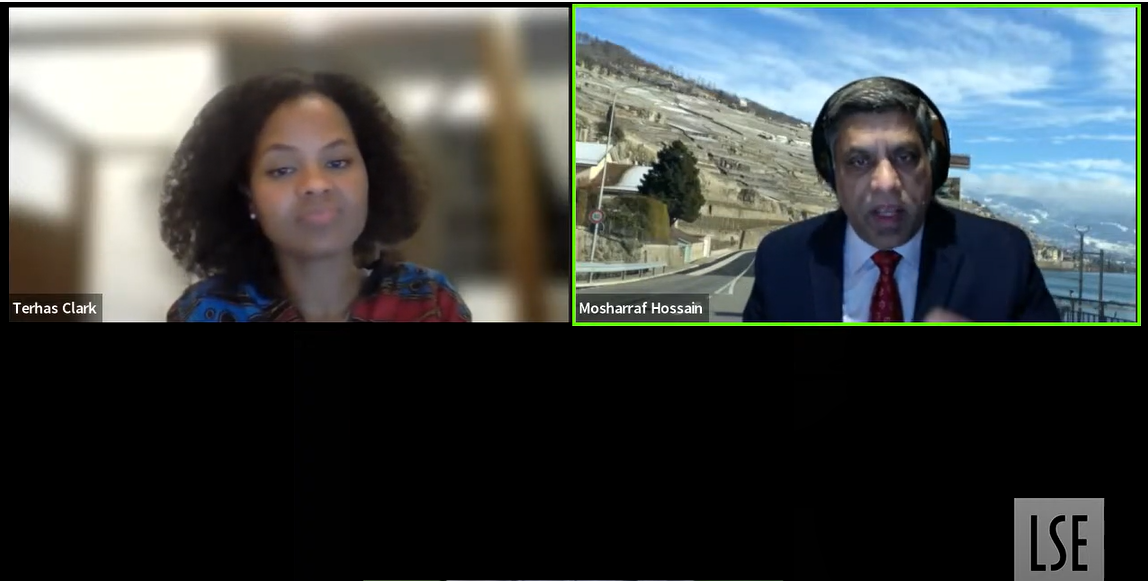
1 Comments